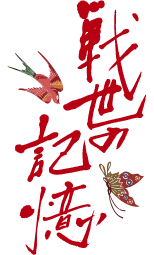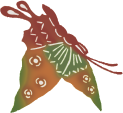
“Experience as a refugee in Aragusuku Village in Miyako-jima Island”
“Experience as a refugee in Aragusuku Village in Miyako-jima Island”
Takashi Shimoji, 83 years old
(Place of birth: Aragusuku, Gusukube Village, Miyako-gun, Okinawa Prefecture)
There were Japanese troops stationed on Miyako-jima Island even before the war. Soldiers from the main island rented the house next to ours and went out for work every day. As I found two soldiers digging a trench, I went over there helping them with digging the trench every day.
The schools back then were militaristic and I sometimes was beaten by my teachers. We didn’t have a building for our school so we brought chairs and studied under pine trees. It was just the period that we could not have an environment to study in a decent manner.
(After the war started)
Miyako-jima Island was hit by naval gunfire as well. When the island was hit by naval gunfire, I was digging an air-raid shelter with one of the soldiers. When I said, “I see airplanes flying back and forth up in the air,” he replied, “They might be monitoring something.”
I heard from my grandfather’s elder brother, who was at the field on the mountain at that instant, that he reported to the soldier, “I see the flashing of ships out on the ocean firing.” To which the solider replied, “It is naval gunfire.” I was told by the soldier to go home at around 11 o’clock. While I was on my way home, I looked at the ocean from the hill and saw four or five ships firing.
During the wartime, obtaining food was a hard job. We grew potatoes and vegetables and practically lived on those. There were many people who cut off the Japanese sago palm fruits (a fruit that is poisonous to humans and animals) and ate them raw.
The soldiers brought us out and made us plant potatoes in a field owned by someone else. While we were planting the potatoes, planes flew over and started firing. Although we were told “Hide yourselves!” we couldn’t do anything except keep standing there. Even under those sort of circumstances, we, along with the soldiers, grew potatoes and lived on them.
One day, five or six women were caught and tied up because they stole some potatoes from the field where many were planted for the soldiers, but when the soldiers were not around, I cut the rope and let them go. Food was so scarce that they had to steal to survive.
(Looking back at the war)
When the war was over, I felt so relieved. I hope that no one ever starts a war again. I wish the generations of my children and grandchildren will never have to go through what I have been through.
Takashi Shimoji, 83 years old
(Place of birth: Aragusuku, Gusukube Village, Miyako-gun, Okinawa Prefecture)
There were Japanese troops stationed on Miyako-jima Island even before the war. Soldiers from the main island rented the house next to ours and went out for work every day. As I found two soldiers digging a trench, I went over there helping them with digging the trench every day.
The schools back then were militaristic and I sometimes was beaten by my teachers. We didn’t have a building for our school so we brought chairs and studied under pine trees. It was just the period that we could not have an environment to study in a decent manner.
(After the war started)
Miyako-jima Island was hit by naval gunfire as well. When the island was hit by naval gunfire, I was digging an air-raid shelter with one of the soldiers. When I said, “I see airplanes flying back and forth up in the air,” he replied, “They might be monitoring something.”
I heard from my grandfather’s elder brother, who was at the field on the mountain at that instant, that he reported to the soldier, “I see the flashing of ships out on the ocean firing.” To which the solider replied, “It is naval gunfire.” I was told by the soldier to go home at around 11 o’clock. While I was on my way home, I looked at the ocean from the hill and saw four or five ships firing.
During the wartime, obtaining food was a hard job. We grew potatoes and vegetables and practically lived on those. There were many people who cut off the Japanese sago palm fruits (a fruit that is poisonous to humans and animals) and ate them raw.
The soldiers brought us out and made us plant potatoes in a field owned by someone else. While we were planting the potatoes, planes flew over and started firing. Although we were told “Hide yourselves!” we couldn’t do anything except keep standing there. Even under those sort of circumstances, we, along with the soldiers, grew potatoes and lived on them.
One day, five or six women were caught and tied up because they stole some potatoes from the field where many were planted for the soldiers, but when the soldiers were not around, I cut the rope and let them go. Food was so scarce that they had to steal to survive.
(Looking back at the war)
When the war was over, I felt so relieved. I hope that no one ever starts a war again. I wish the generations of my children and grandchildren will never have to go through what I have been through.


